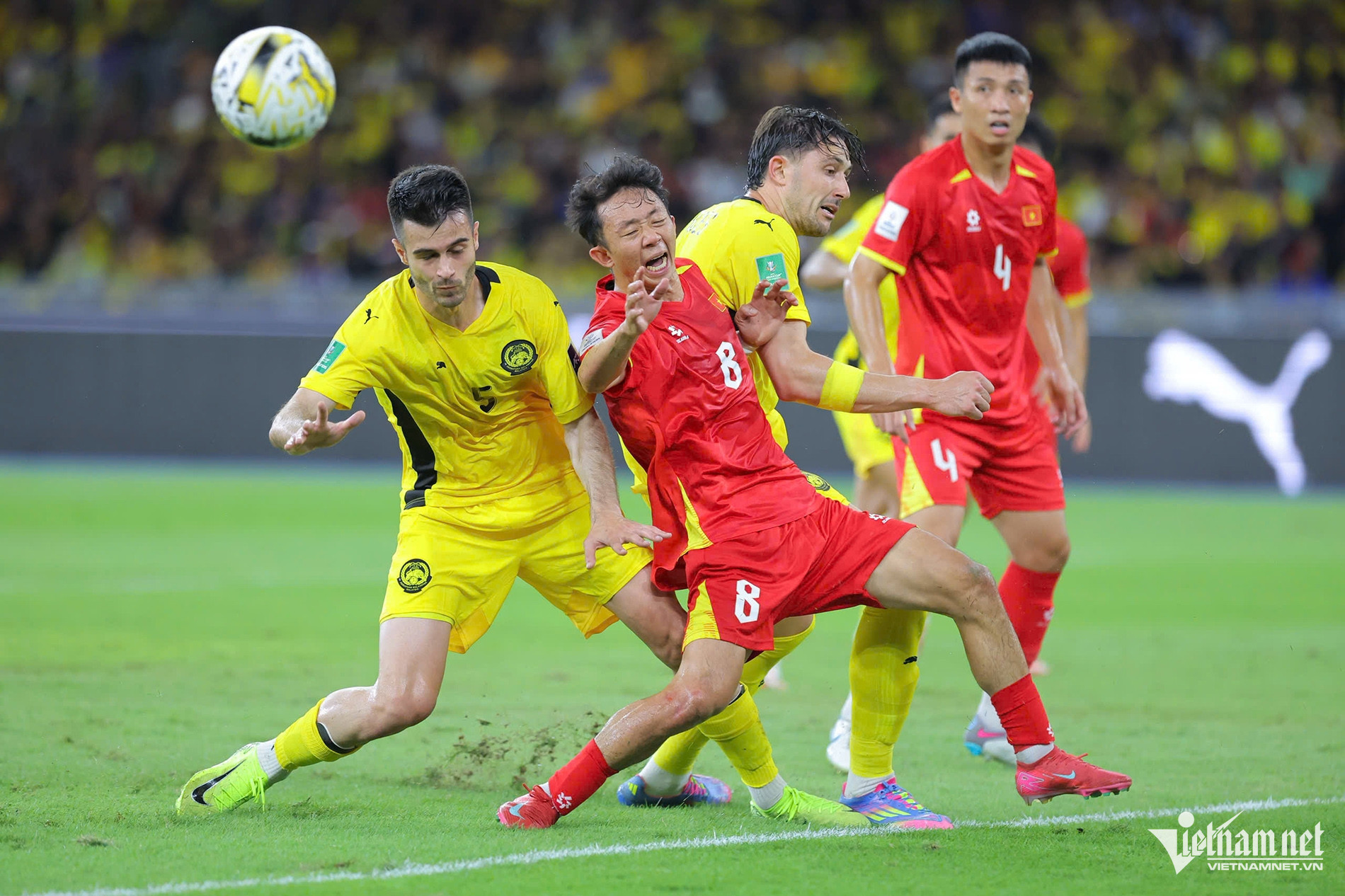Vietnam’s heavy loss in the 2027 Asian Cup qualifiers at Bukit Jalil instantly sparked intense debate. Many argued that Vietnam must naturalize more foreign-born players - like Malaysia, the Philippines, or Indonesia - to be competitive.
Indeed, on the night of June 10, Malaysia fielded numerous naturalized stars - Figueiredo, Holgado, Cools, and Corbin-Ong - who overwhelmed coach Kim Sang Sik’s squad. It marked Vietnam’s most lopsided loss to a Southeast Asian rival in 22 years, raising serious concerns about both quality and resilience.
This prompted widespread support for “passport rescue” strategies, much like how Xuân Son, a successful naturalized player, helped deliver victory in a previous ASEAN Cup.
But momentary emotions can obscure long-term consequences. A national team is not just about scoreboard results - it’s also about national pride and cultural identity. Mass naturalization may offer short-term momentum, but is it truly sustainable?
Naturalization has become a regional trend, and Vietnam has followed suit with core players like Dang Van Lam and Filip Nguyen, alongside Jason Quang Vinh and Xuân Son. The benefits are clear - Xuân Son played a vital role in securing an ASEAN Cup title.
Yet this strategy lacks long-term viability. First, the pool of quality Vietnamese-origin players abroad is limited. If the shift turns toward naturalizing non-Vietnamese athletes, the risks of cultural dissonance and weak national commitment grow. Second, reliance on naturalized talent can undermine domestic development and restrict opportunities for young local players.
Moreover, FIFA is tightening its eligibility rules. If regulations change, the naturalization strategy could collapse entirely. Thus, naturalization should be seen as a supplementary tactic - not a permanent solution.
Rooted reform: Youth development and ambition
The core solution lies in nurturing youth and cultivating ambition. More than 20 years after turning professional, Vietnam still has very few players playing abroad or even setting that as a goal.
In contrast, Thai, Indonesian, and Malaysian players often pursue opportunities overseas. Vietnamese footballers, however, tend to play it safe, sticking to the V-League or even lower divisions, prioritizing financial security over career progression.
To change this, the Vietnam Football Federation (VFF) and local clubs should boost match time for young players, better manage the foreign player quota in the V-League, and actively facilitate moves to Japan, South Korea, or Europe.
When youth players consistently compete at high intensity, their physical, tactical, and psychological skills will grow. Only then can Vietnam cultivate a deep bench of local talent, preserve national identity, and avoid the desperate reliance on “passport solutions” after every failure.
Duy Nguyen
